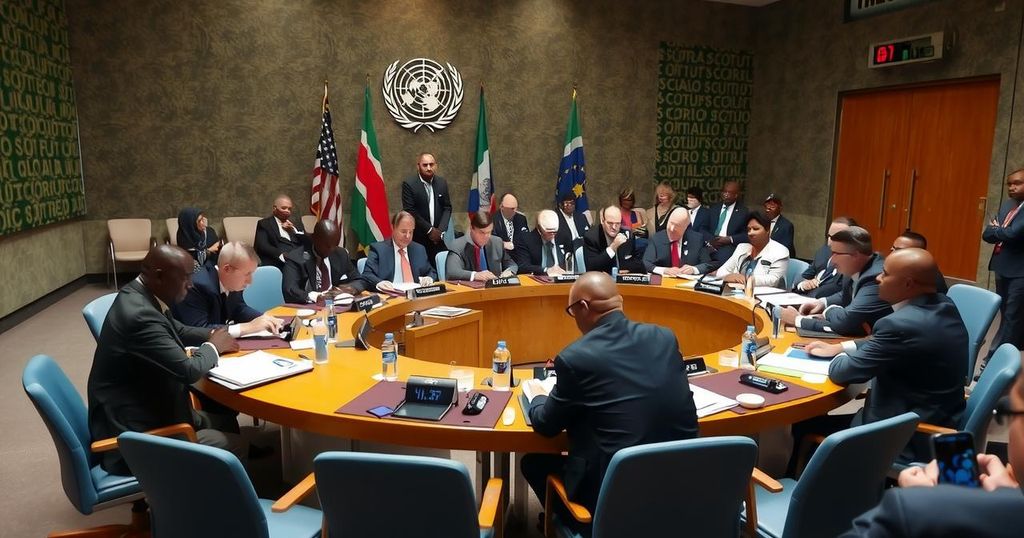The continued conflict in Sudan severely impacts political dialogue and humanitarian conditions in South Sudan and Abyei. UN Assistant Secretary-General Martha Ama Akyaa Pobee emphasized the need for increased support to UNISFA to mitigate these crises ahead of the political dialogue resuming. Concerns over regional stability and violations of agreements necessitate immediate action from the Security Council to assist in restoring peace and humanitarian relief efforts.
On November 5, 2024, Martha Ama Akyaa Pobee, Assistant Secretary-General for Africa at the United Nations, addressed the Security Council regarding the grave implications of ongoing conflict in Sudan and political instability in South Sudan. The war in Sudan hampers critical political dialogues related to the Abyei region and border matters. With UNISFA’s mandate set to expire on November 14, Ms. Pobee outlined the urgency for strengthened support for the United Nations Interim Security Force for Abyei. Ms. Pobee elaborated on the severe ramifications of the Sudanese conflict, emphasizing that its continuation exacerbates security, economic, and humanitarian crises in both nations. As she stated, “The war in the Sudan continues to have a profound impact on the security, economic and humanitarian situations in both Sudan and South Sudan, including in the Abyei box.” Refugee inflows from Sudan into South Sudan contribute to the deteriorating conditions, marked by lack of access to basic necessities. In the Abyei area, the threat of armed conflict persists with reports of incursions by armed groups, notably the Rapid Support Forces, who have engaged in looting activities. Furthermore, climate-induced disasters exacerbate the situation, displacing thousands and hampering essential services. The ongoing conflict has serious ramifications extending beyond the borders, destabilizing not only Sudan and South Sudan but also contributing to wider regional instability within the Horn of Africa and the Sahel regions. While progress on political negotiations remains stalled, UNISFA’s efforts are crucial for maintaining peace and facilitating conditions that may lead to dialogue. Ms. Pobee underscored the mission’s role in monitoring tensions and promoting reconciliation. However, the presence of South Sudanese security personnel in Abyei highlights ongoing violations of agreements established between the two nations. Supervision and support from the Council are imperative as UNISFA grapples with resource constraints amid increasing demands due to the influx of displaced persons. Calls for enhanced policing support are vital to uphold law and order in Abyei, which has seen an uptick in criminal activities. The call to action is clear: ensure that UNISFA is adequately supported to fulfill its mandate and contribute effectively to regional stability.
The geopolitical environment in Sudan and South Sudan has been marked by prolonged violence and humanitarian crises. The region’s history of conflict makes the situation complex and requires careful navigation to ensure peace and stability. The Abyei region, rich in resources but marked by territorial disputes, has become especially sensitive. The United Nations has deployed UNISFA to monitor and facilitate dialogue between Sudan and South Sudan, with an emphasis on maintaining peace and security in Abyei.
In conclusion, the ongoing conflict in Sudan poses dire challenges for both Sudan and South Sudan, severely affecting humanitarian conditions and escalating tensions in the Abyei region. UNISFA’s role remains crucial, yet its effectiveness is hampered by resource constraints and violations of agreements by regional actors. It is essential for the international community and the Security Council to bolster support for UNISFA, facilitating a path toward renewed dialogue and stability in a region fraught with challenges.
Original Source: www.america-times.com






